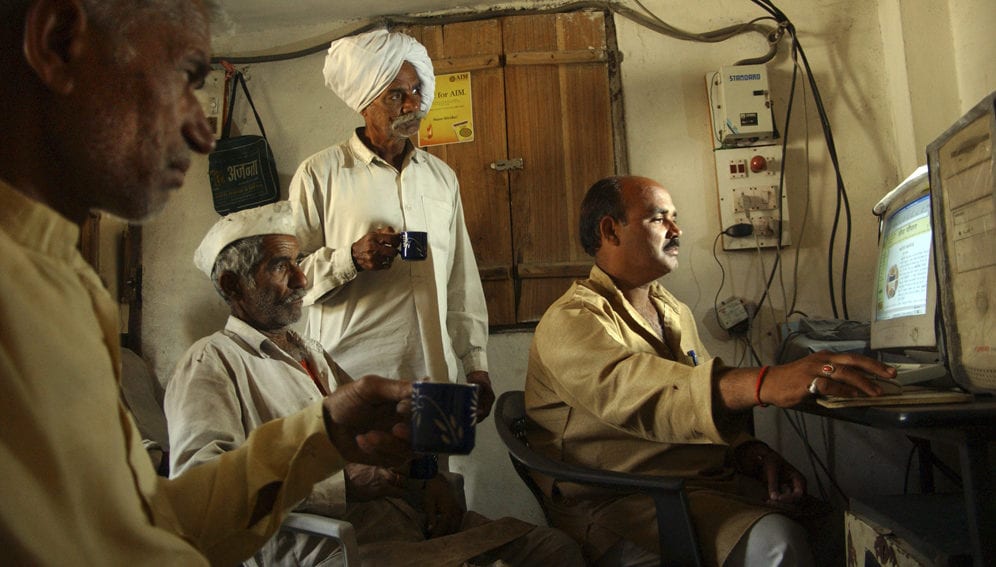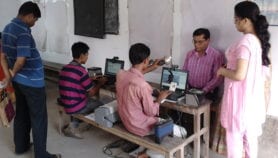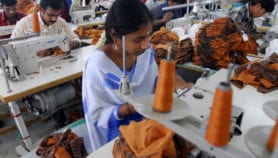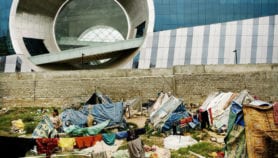By: Anita Makri
Send to a friend
The details you provide on this page will not be used to send unsolicited email, and will not be sold to a 3rd party. See privacy policy.
When I arrived at the Bellagio Center in early November as a visiting journalist at the Rockefeller Foundation’s thematic residency on science for development, the plan was to talk about how technology can be put to better use for development.
SciDev.Net’s programme, supported by the Rockefeller Foundation, was designed to encourage conversations about how best to support energy systems for adapting to a changing climate, grow enough food more sustainably, harness the power of big data, and build stronger health systems.
It didn’t all go to plan. We certainly had lively and stimulating conversations, and we did talk about the role of technology, just not in the way that I expected.
Let me explain. The Center regularly hosts academics, scientists and artists from around the world to foster inter-disciplinary discussions on pressing international issues. For this residency, the selection brought together an eclectic group working in different roles across issues such as human rights, water management, climate change, food security, engineering and university education.
Every Wednesday evening at Bellagio our conversations focused on a different theme, which was also explored through interviews and online debates on the SciDev.Net website. In each of those conversations, as it turned out, we would brush over the nitty-gritty of how technology can help to very quickly get to the wider social, political and economic baggage that comes with technological tools.
Take climate change and energy, our first week’s topic. The evening began with questions focused on small-scale, off-grid systems that can help lift people out of poverty and – if deployed widely – contribute to mitigation, particularly in India where a large population and rising energy demands could undermine global mitigation targets. Did the room agree that small-scale energy technologies had a role to play, I wondered, and what would it take to adopt them at scale?
As the discussion evolved, off-grid systems remained beyond reach. Much of the focus was on the right regulation and financial incentives to make distributed energy generation viable – issues that do also matter for systems like small solar. Investment from multilateral institutions favours big projects, we heard. And there was talk about nuclear power as a part of the future energy mix in the global South.
The grid was very present in the room. The bigger picture here, I thought, is that centralised energy systems are part of a status quo – large and entrenched, and difficult to shift. And this raises the question, which development thinkers have tackled in recent years, of how best to make change happen.
By the end of the second week, which focused on food and agriculture, there was a clear message that technology is never neutral or necessarily a route to progress: it can be beneficial, and yet can carry unintended consequences. For many people in the room, it was also clear that this doesn’t happen in a vacuum – that the choice of what technological tools to push or adopt often comes attached to power and begs questions over who controls them, and who stands to gain or lose.
While mobile phones give farmers access to crucial information about weather forecasts or crop prices, for example, tools that promise high productivity – such as specialised seeds or high-tech irrigation – can make farmers dependent on agri-systems outside their control. The environmental fallout of using fertilisers to boost productivity during the Green Revolution was also part of that discussion.
The dual use of technology echoed through the rest of the residency. In the discussion over the promise of big data, concerns over privacy and the transfer of data ownership to corporations – or indeed authoritarian governments – loomed large. By the time we came to look at the topic of health systems and the growing appeal of ‘digital health’, there was no getting away from questioning assumptions that technology is a sure bet to a better life.
Running through these concerns was a discomfort about the way in which technological systems in contemporary society are running away from our collective capacity to manage them. This is an age-old problem, but it is now finding a new urgency as the speed and scale of technological development increases, intertwining it ever more tightly into services we use on a daily basis.
Spirited debates ensued about what might be driving or maintaining this trend despite the problems documented over the years, from dirty energy to unhealthy food habits. These were mostly about the role of corporations, dominant economic systems and colonialism. All three are, or have been, agents of power over resource exploitation ‒ and over what resident Veronica Garea dubbed ‘the narrative of progress’ that people and countries aspire to.
Somewhat unexpectedly, this idea crystallised as artist Asim Waqif presented his work on water management in semi-arid parts of India. He described a traditional water harvesting system made up of baoris, wells that collect groundwater with steps leading to the water level, and kunds, stepped underground tanks for collecting rainwater runoff.
Designed like a series of interconnected bowls to collect water from surrounding catchment areas, the system was abandoned in the 19th century in favour of piped irrigation brought in by the British colonial administration and, according to Waqif, better suited to conditions in London than Delhi.
Local people would have been easily persuaded to abandon the baoris. It took time to walk up and down those steps to collect water. But as the network of pipes grew, preventing rainwater from slowly seeping into the ground, the older systems became derelict. Piped water may well have stood for ease, speed and an idea of progress. The same could be said of fertilisers, health apps or slickly marketed junk food.Technologies promise easier, more productive lives. But that’s not necessarily the same as a better life; and shiny innovations can be so seductive that it’s easy to overlook lessons from the past.
The Bellagio group rightly focussed on those lessons. Who champions technological solutions, and for whom? What costs come with the benefit? Are the people that tech tools are meant to serve being listened to? Is there choice and control over their use? Can we still imagine – and invest in – low-tech or even no-tech solutions?
These aren’t new questions, but are now coming to a head as the societal impact of some new technologies hits home. It comes down to the pace of change, and how to manage it – both to catch up with the speed in which technological tools are transforming the world we live in, and to shift entrenched systems that threaten a good quality of life.
As we work towards change for the better, let’s not assume that answers will lie in notions of development that hail from the global North.














